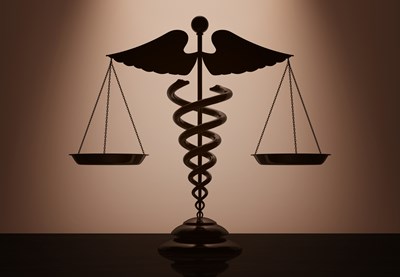By oath and by law, emergency physicians will treat any patient, regardless of their ability to pay. Federal law, under the Emergency Medical Treatment and Labor Act (EMTALA), forbids emergency care providers from discussing with the patient any potential costs of care or details of their particular insurance coverage until they are screened and stabilized. Patients can’t choose where and when they will need emergency care, and they should not be punished financially for having emergencies.
Expanded Patient Protections that Truly Take the Patient Out of the Middle
Balance billing is prohibited when a patient receives out-of-network emergency care, the emergency services provider cannot make any demand for such payment from the patient;
The patient won’t pay any more out-of-pocket (i.e. coinsurance, copay, and deductible) than they would have paid if their emergency care were in-network (currently such protection only applies to coinsurance and co-pays); and
Insurers will directly pay any coinsurance, copay, and deductible for emergency care to the provider.
Insurers can then collect back these amounts from the patient. This ensures patients only have a single point of contact for emergency medical billing and payment, and will no longer receive and have to reconcile multiple, confusing bills and EOBs that result from the many providers that are often involved in a single emergency episode.
To ensure policyholders better understand the limits of their insurance coverage and all potential out-of-pocket costs when seeking care, insurers will be required to display the patient’s deductible amount on policyholders’ insurance cards.
Insurers must provide their policyholders with clear, concise, and meaningful explanations of their plans’ emergency services benefits, an up-to-date list of in- and out-of-network providers, and beneficiary rights under EMTALA.
Take the Patient Out of Insurer-Provider Billing Disputes
The insurer will pay directly to the emergency care provider within 30 days the amount of the deductible and cost-sharing (plus an additional amount as determined below). When provider-insurer disputes arise over reimbursement for out-of-network emergency services, the following will be used to resolve them:
- The payment amount will be determined under any state law that takes a comparable approach to this proposal.;
- For claims under $750 (amount to be adjusted for inflation), the balance will be paid in full. For inflation-adjusted amounts over $750, the insurer will pay an interim payment directly to the provider.
- Required payments will be made within 30 days of claim submission. Failure to do so will trigger civil monetary penalties (CMPs) of $500 per day.
- Either party may trigger the independent dispute resolution (IDR) process described below within 30 days of the provider receiving the interim payment.
Independent Dispute Resolution
The United States Department of Health & Human Services (HHS) will maintain a database of IDR entities that meet certain qualifications (e.g. freedom from conflicts of interest, reasonable fees) to resolve disputes. Costs related to this will be offset by any collected CMPs, as referenced above. HHS may delegate the responsibility of the database to a third party such as the American Arbitration Association or to any state that already undertakes a similar function.
The emergency care provider and insurer will submit to the arbitrator the amount that was charged or billed for the emergency medical services, and the interim amount paid, respectively. Either party may consolidate multiple disputed claims between them into a single adjudication.
The arbitrator will select one of these two amounts as the payment amount, and in doing so consider the following:
- The provider’s level of skill, education, and training;
- The nature of the services provided;
- The circumstances and complexity of the case;
80th percentile of charges for comparable services in the same geographical area, as determined by a transparent and wholly independent Medical Claims Database (such as FAIR Health);
150 percent of the average in-network rate for comparable services in the same geographical area as determined by a transparent and wholly independent Medical Claims Database (such as FAIR Health).
Arbitration will be completed within 30 calendar days of either party commencing the IDR process. Any payment owed by one party to the other must be made within 15 calendar days of a determination. The costs of the IDR shall be borne by the non-prevailing party.
Commission on Access to Quality and Affordable Emergency Care
HHS will establish a Commission on Access to Quality and Affordable Emergency Care with diverse, cross-sector representation to study and provide recommendations to Congress within three years of bill enactment on specified matters including:
- Adequacy of patient protections, including network adequacy standards and clarity of enrollee notification language from insurers
- If the bill’s new processes surrounding out-of-network emergency care are providing sufficient provider protections to ensure continued access to high-quality emergency care for patients;
- The merits of establishing supplemental funding for uncompensated care incurred by emergency physicians pursuant to their practice of medicine under the requirements of EMTALA.
 American College of Emergency Physicians
American College of Emergency Physicians







